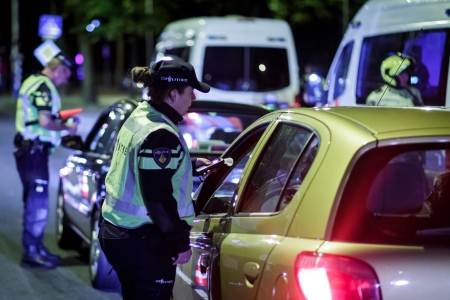When drink driving, the skills required for safe driving diminish [10] [11]. Drivers are more impulsive and reckless. Furthermore, they assess traffic situations less well, recognise dangers less timely, are less capable of reacting in time, show worse vehicle control and they are less alert. This deterioration in driving behaviour is more noticeable among young drivers (see the question Which risk groups are distinguished in the Netherlands?).
Moskowitz & Fiorentino [12] and Caird, Lees & Edwards [13] studied the effect of a low dose of alcohol on reaction speed, vehicle control and driver alertness. They found the following effects:
- Reaction speed: the speed with which one perceives objects, processes the information and reacts, already starts to decrease at a blood alcohol content (BAC) of 0.3‰. It then takes longer to recognise a dangerous situation, to react to a red light, and to respond to a braking vehicle in front [13].
- Vehicle control: under normal conditions, steering skills begin to deteriorate from a BAC of 0.5‰ onwards, but in particular and/or difficult conditions (e.g., when crosswinds deflect the vehicle) problems are experienced from a BAC of 0.2‰ onwards [12].
- Alertness: drivers become less alert, from a BAC of 0.3‰ onwards [12]. When blinking, drivers keep their eyes closed for longer and the reaction to a simple stimulus is slower [13].
Dupont, Martensen & Silverans [14] summarise the effects of alcohol on driving skills as follows ([14] p. 7): "Automated processes begin to deteriorate from a BAC of 0.5‰ onwards; the processes that require any conscious attention of the driver, are already affected from 0.2‰ onwards”.
In a meta-analysis of driving simulator studies into the effect of alcohol use on driving behaviour, Irwin et al. [15] found that drinking alcohol (BAC levels ranging from 0.23 to 1.0‰) caused more swerving (variation in lane position) and more variation in speed.
